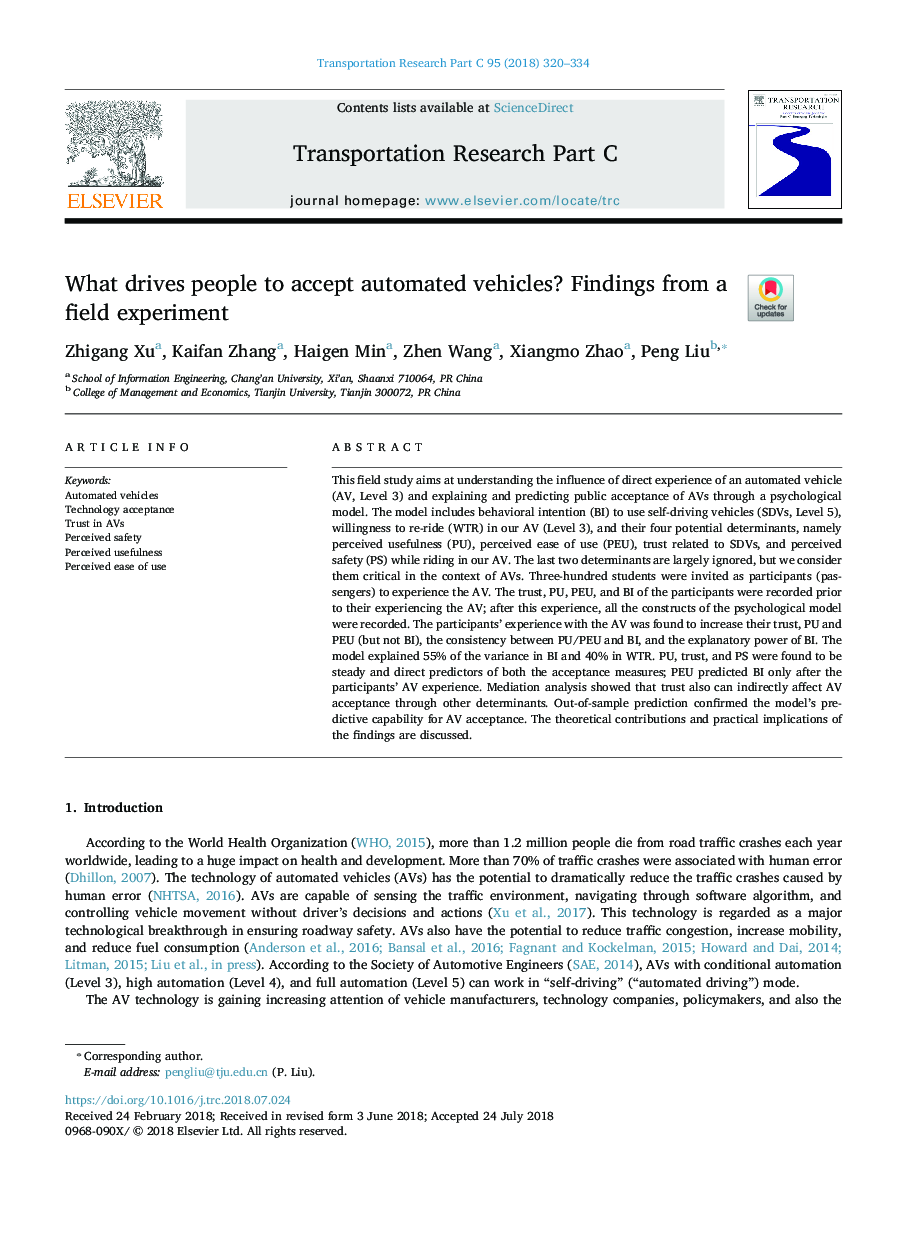| Article ID | Journal | Published Year | Pages | File Type |
|---|---|---|---|---|
| 6935678 | Transportation Research Part C: Emerging Technologies | 2018 | 15 Pages |
Abstract
This field study aims at understanding the influence of direct experience of an automated vehicle (AV, Level 3) and explaining and predicting public acceptance of AVs through a psychological model. The model includes behavioral intention (BI) to use self-driving vehicles (SDVs, Level 5), willingness to re-ride (WTR) in our AV (Level 3), and their four potential determinants, namely perceived usefulness (PU), perceived ease of use (PEU), trust related to SDVs, and perceived safety (PS) while riding in our AV. The last two determinants are largely ignored, but we consider them critical in the context of AVs. Three-hundred students were invited as participants (passengers) to experience the AV. The trust, PU, PEU, and BI of the participants were recorded prior to their experiencing the AV; after this experience, all the constructs of the psychological model were recorded. The participants' experience with the AV was found to increase their trust, PU and PEU (but not BI), the consistency between PU/PEU and BI, and the explanatory power of BI. The model explained 55% of the variance in BI and 40% in WTR. PU, trust, and PS were found to be steady and direct predictors of both the acceptance measures; PEU predicted BI only after the participants' AV experience. Mediation analysis showed that trust also can indirectly affect AV acceptance through other determinants. Out-of-sample prediction confirmed the model's predictive capability for AV acceptance. The theoretical contributions and practical implications of the findings are discussed.
Keywords
Related Topics
Physical Sciences and Engineering
Computer Science
Computer Science Applications
Authors
Zhigang Xu, Kaifan Zhang, Haigen Min, Zhen Wang, Xiangmo Zhao, Peng Liu,
